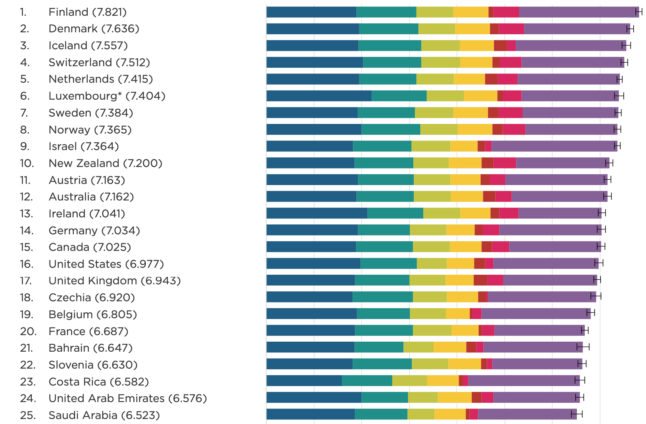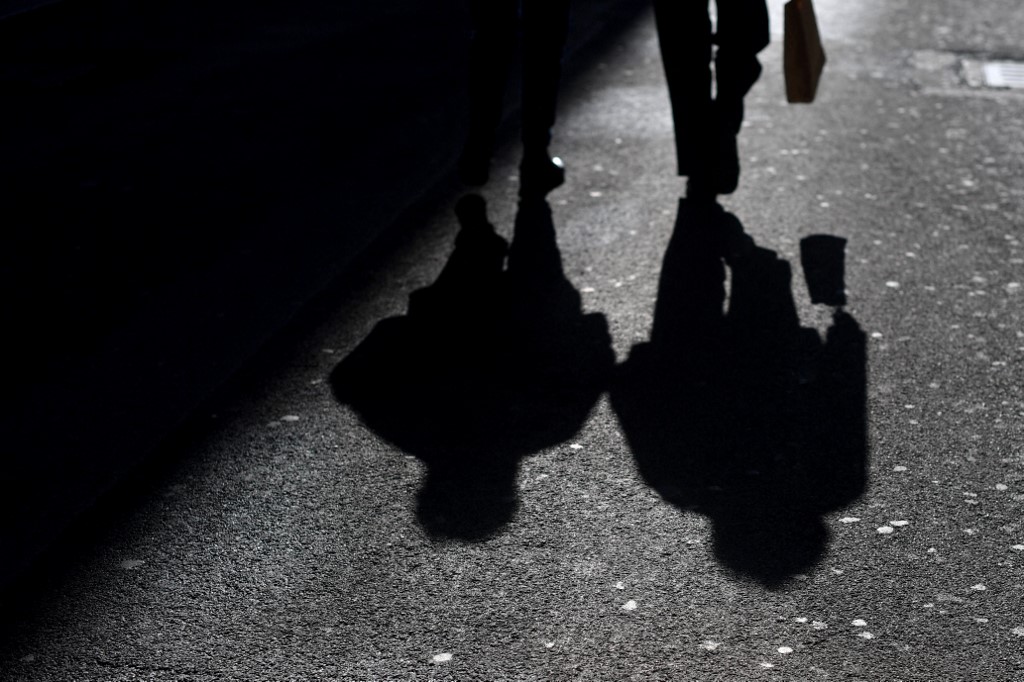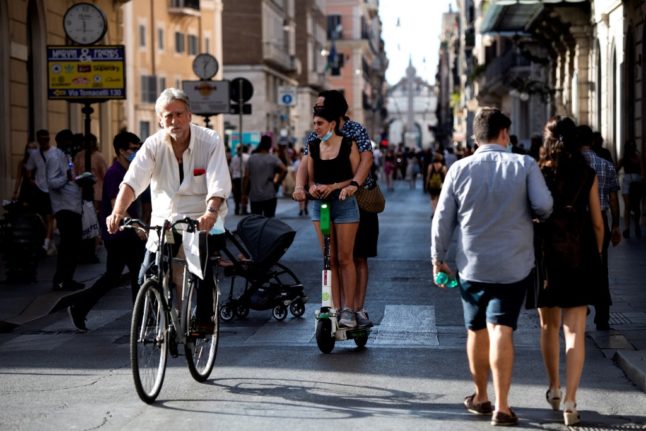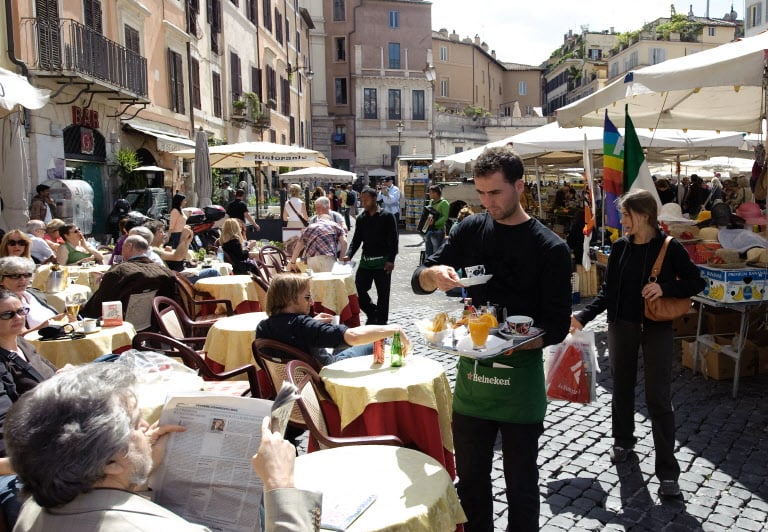Italy’s population has placed among the least content in Europe, according to a new study by the UN Sustainable Development Solutions Network.
Happiness can be a woolly concept and hard to define, but the 2022 World Happiness Report has attempted to do that in a global survey of almost 150 countries.
Italy ranked 31st worldwide, faring well on a worldwide scale, but in Europe it lagged way behind some of its neighbours – who not only ranked highly in Europe but globally too. Finland, Denmark, Iceland and Switzerland took the four top spots globally.
In Europe, Italy also placed behind France, Germany, Austria, Ireland and slightly behind Spain and Romania.

Why were Italians ranked as being unhappy?
Based on scores over the period 2019-2021, the study took into account the impact of the Covid-19 pandemic, which may go some way to explaining Italy’s poor happiness index as it bore the brunt of the first waves of coronavirus infection in Europe in 2020.
Of course, there will be individual variations and happiness is difficult to scientifically define or measure.
Researchers used the following seven categories to assess each country’s happiness level:
- Social support
- Life expectancy
- Freedom to make life choices
- Generosity
- GDP per capita
- Perceptions of corruption
- Positive and negative affects – dystopia (evaluating how much better life is in a given country in comparison to ones with bad living conditions).
“Our measurement of subjective well-being continues to rely on three main indicators: life evaluations, positive emotions, and negative emotions,” the report said.
“Happiness rankings are based on life evaluations as the more stable measure of the quality of people’s lives.”
Italy scored quite well in terms of its GDP, social support and healthy life expectancy, but respondents expressed a much lower value of freedom to make life choices compared to its European neighbours. Italians didn’t fare so well in dystopia either.
The report highlighted how Italy’s anxiety and sadness grew in the wake of the Covid-19 pandemic, based on social media analysis.

Five weeks after the outbreak of Covid, Italy showed the highest levels of anxiety globally. Levels of sadness grew too.
“On average, sadness reached its highest level three weeks after the outbreak, and remained stable for the following two weeks. The gradual increase of sadness terms occurred a while after stringency of social distancing measures increased, and remained high about two weeks later,” the report stated.
READ ALSO: Twelve statistics that show how the pandemic has hit Italy’s quality of life
Positive emotions also dropped in Italy as public health measures became stricter, the report noted.
However, throughout the turmoil, Italy ranked highly for supporting and taking care of each other – it was in fact the nationality least likely to simply take care of themselves.
Italy has consistently ranked poorly for perception of corruption: though there have been steady improvements over the past decade, it continues to rate as one of the most corrupt nations in Europe.
Despite the country’s overwhelmingly positive image abroad, Italy is in fact no stranger to poor rankings in various international comparisons on everything from corruption levels to English language proficiency.
You can find out more about those rankings below:




 Please whitelist us to continue reading.
Please whitelist us to continue reading.
Member comments